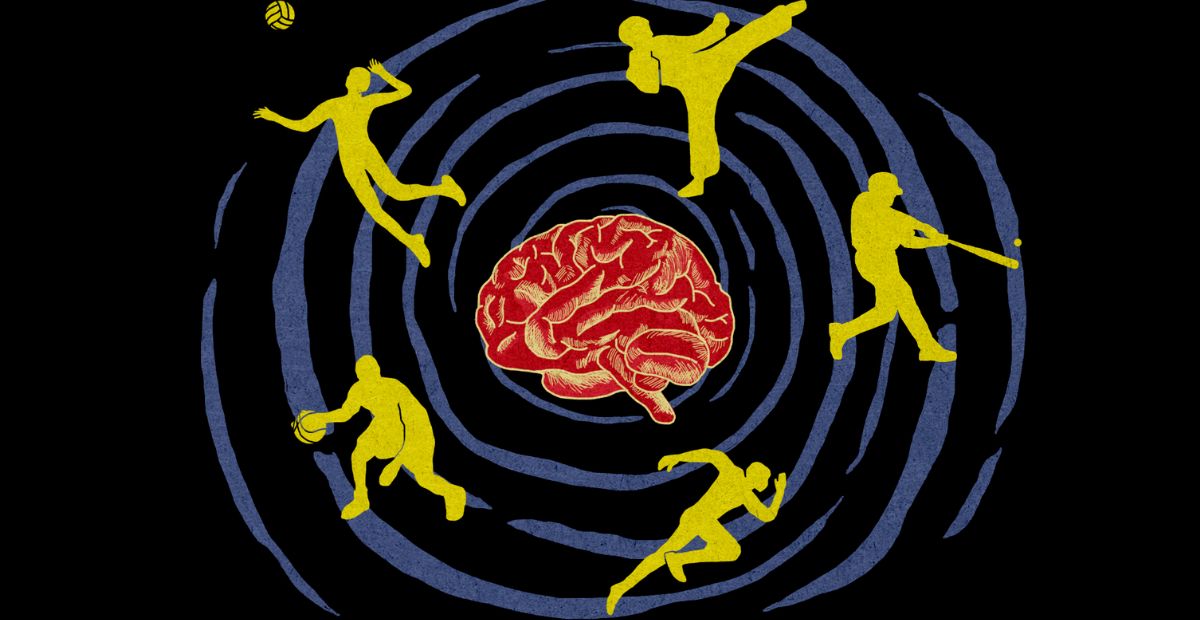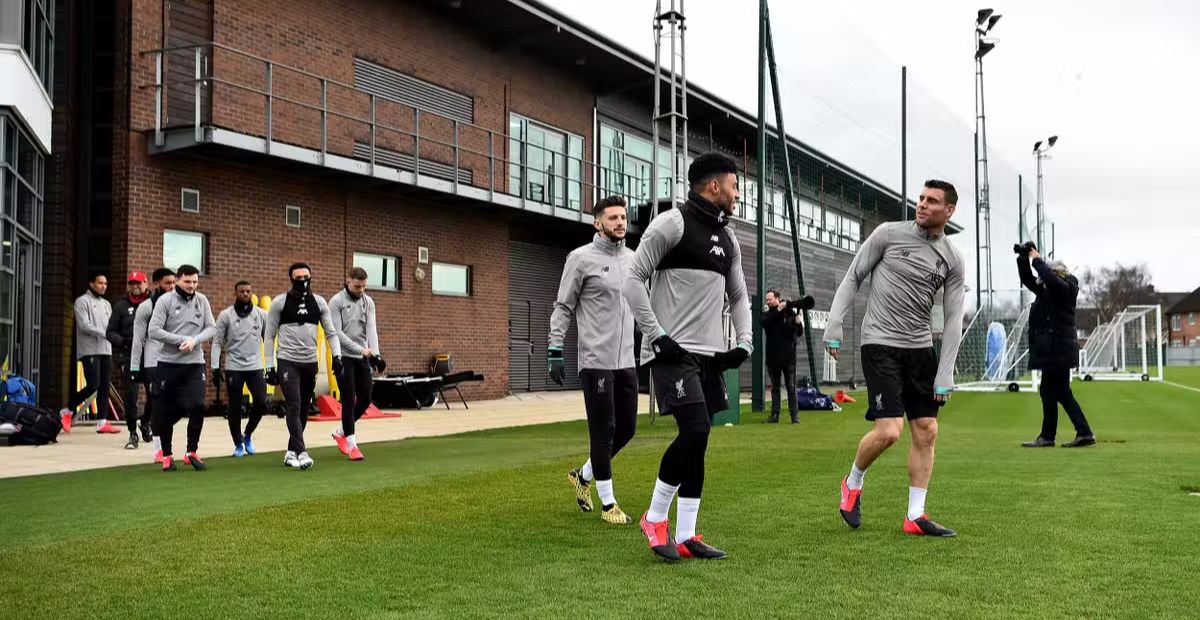Are you passionate about sports and mental health? If so, a career as a sport psychologist may be the perfect fit for you! A career in sport psychology is both mentally stimulating and incredibly rewarding.
You get to combine your knowledge of athletic performance with psychological principles and work directly with athletes to help them develop their skills both on and off the field.
In this post, we’ll discuss how to become a sport psychologist including the necessary education and required certifications – so you can take the first step toward starting your dream job today.
Table of Contents
What Is Sports Psychology?

Sports psychology helps athletes of all levels and abilities to perform at their highest potential. By focusing on the mental aspects of sports, sports psychologists help athletes conquer anxiety, build confidence, and establish a more effective mindset toward their goals.
Often working in conjunction with coaches, sports psychologists help athletes improve their performance both on and off the field. This specialized field of psychology utilizes various techniques, from relaxation and visualization exercises to goal-setting and cognitive behavior therapy.
As sports have evolved, sports psychology has become an increasingly important aspect of training, giving athletes the tools they need to overcome challenges and optimize their performance.
Whether you are a professional athlete or just enjoy playing sports recreationally, sports psychology can provide the tools you need to enhance your abilities and achieve your goals.
What Does A Sports Psychologist Do?

Sports psychologists play a critical role in athletes’ lives, helping them perform better, overcome barriers, and maintain peak mental and emotional health.
In essence, these specialized psychologists are charged with understanding the unique internal landscape of athletes to optimize their performance and well-being.
Specifically, they work with athletes to identify the specific situations, barriers, and strategies that impact their ability to perform well. They may also help athletes establish mental skills that can optimize performance, such as goal-setting, visualization, or self-talk strategies.
Sports psychologists must also deeply understand physical health and recovery techniques since injuries, sickness, and recovery can greatly impact an athlete’s mental well-being.
By combining cutting-edge research with practical application, sports psychologists help athletes perform at the highest level, both on and off the field.
Along with this, a sport psychologist’s job will involve working with athletes, coaches, and teams to help them develop the mental and emotional skills necessary for success. This may involve various tasks, including
1. Conducting Assessments
One of the primary tasks of a sport psychologist is to conduct assessments of athletes’ mental and emotional states. This may involve administering psychological tests or conducting interviews to better understand an athlete’s psychological profile.
Based on the results of these assessments, the sport psychologist can develop personalized plans to help the athlete improve their mental and emotional skills.
2. Developing Mental Skills Training Programs
Another important task of a sport psychologist is to develop mental skills training programs for athletes. These programs may include techniques such as visualization, goal setting, and self-talk.
The goal of these programs is to help athletes develop the mental and emotional skills they need to perform at their best.
3. Providing Counseling And Support
Sports psychologists also provide counseling and support to athletes who may be struggling with psychological issues. This may include issues such as anxiety, depression, or performance anxiety.
By providing support and counseling, sports psychologists can help athletes manage these issues and develop coping strategies.
Education And Training Requirements
To become a sport psychologist, you will need to complete a significant amount of education and training. Most sports psychologists hold a doctoral degree in psychology, although some may have a master’s degree.
In addition to a degree in psychology, you will also need to have specialized training in sports psychology. To gain this specialized training, you can pursue a graduate degree in sport psychology or take courses in sports psychology as part of your doctoral program.
You may also want to gain experience working with athletes, either through internships or through working as an assistant to a sport psychologist.
Certification And Licensing
In addition to your education and training, you will also need to obtain certification and licensing to practice as a sport psychologist.
The specific requirements for certification and licensing vary by state, but in general, you will need to pass an exam and meet certain education and experience requirements.
The Association for Applied Sport Psychology (AASP) offers a certification program for sports psychologists. To become certified, you will need to meet certain education and experience requirements, pass an exam, and adhere to a code of ethics.
Certification is not required to practice as a sport psychologist, but it can enhance your credibility and demonstrate your expertise in the field.
Skills Required To Become A Sport Psychologist

To become a successful sports psychologist, you will need to have a variety of skills and qualities. These include:
● Strong Interpersonal Skills
As a sport psychologist, you will be working closely with athletes, coaches, and teams. You will need to have strong interpersonal skills to build relationships with your clients, communicate effectively, and earn their trust.
● Knowledge Of Psychology And Sports
You will need to have a solid understanding of both psychology and sports to be successful as a sport psychologist. This means staying up-to-date with the latest research in both fields and understanding how they intersect.
● Patience And Empathy
Working with athletes can be challenging, especially when they are struggling with psychological issues. You will need to have patience and empathy to help your clients through these difficult times.
● Strong Analytical And Problem-Solving Skills
As a sport psychologist, you will need to be able to analyze your clients’ psychological profiles and develop personalized plans to help them improve their mental and emotional skills. This requires strong analytical and problem-solving skills.
Job Outlook And Salary Expectations
The job outlook for sports psychologists is strong, with demand for these professionals expected to grow over the next decade. The average salary for sports psychologists varies depending on a variety of factors, including location, experience, and education.
According to the Bureau of Labor Statistics, the annual salary for psychologists can go up to $55,000. However, successful sports psychologists may command higher salaries around $95,000, especially working independently or for professional teams or athletes.
Steps To Becoming A Sport Psychologist
If you are interested in becoming a sport psychologist, here are the steps you can take to get there:
Step 1: Obtain An Undergraduate Degree
To become a sport psychologist, you will need to have a solid foundation in psychology. This means obtaining an undergraduate degree in psychology or a related field.
Step 2: Pursue a Graduate Degree
Most sports psychologists hold a doctoral degree in psychology. To pursue this degree, you will need to complete a graduate program in psychology with a focus on sports psychology.
Step 3: Gain Experience
To gain experience working with athletes, you can pursue internships or assistant positions with sports psychologists or teams.
Step 4: Obtain Certification
To enhance your credibility and demonstrate your expertise in the field, you may want to obtain certification from the Association for Applied Sport Psychology.
Step 5: Secure A Job
Once you have completed your education and obtained certification, you can seek job opportunities as a sport psychologist.
Benefits Of Being A Sport Psychologist

Now, we’ll explore some of the five benefits of being a sport psychologist, including the impact that you can make on athletes’ lives and your own career.
● Make A Positive Impact On Athletes’ Lives
As a sport psychologist, you can positively impact athletes’ lives. You can help them achieve their goals, overcome obstacles, and develop skills that will benefit them both on and off the field.
By working with athletes one-on-one or in group settings, you can help them develop coping skills, boost their confidence, and enhance their overall mental toughness.
● Diverse Career Opportunities
Sports psychology is a vast field, and there are numerous career opportunities available. You can work in academic institutions, professional sports organizations, or private practices. You can focus on working with specific types of athletes, such as professionals, amateurs, or children.
Additionally, you can work with teams, coaches, or athletic departments. With so many options, you can find a career path that suits your interests and goals.
● Intellectual Challenge
One of the most significant benefits of being a sport psychologist is that it is a mentally challenging field. You’ll need to keep yourself updated on the latest research, techniques, and approaches to help your clients achieve their best performance.
This means that you’ll be learning and growing throughout your career. You’ll need to be a creative problem-solver, developing personalized strategies that cater to your client’s individual needs.
● Work-Life Balance
While many jobs in the sports industry require working long hours, being a sport psychologist provides a great work-life balance. Most sports psychologists work regular business hours, with the occasional evening or weekend appointment.
You’ll have time to pursue hobbies and interests outside work and enjoy a fulfilling personal life.
● Professional Fulfillment
Finally, being a sport psychologist provides you with a sense of professional fulfillment. You have the opportunity to make a difference in the lives of athletes and coaches.
The sense of satisfaction that comes from assisting your clients in reaching their goals can be incredibly rewarding.
The benefits of being a sports psychologist in the field of sports are multiple, enriching, and rewarding. It is doubtless that there is no better reward for professionals in this field than seeing their clients reach the pinnacle of success.
FAQs:
How can I gain experience in the field before starting my career as a sport psychologist?
To gain experience in the field of sport psychology, you can start by volunteering with your local sports team or organization, working with junior athletes or athletes at the school or collegiate level. Also, getting an internship in a sports facility or health clinic can also provide practical experience. Besides, attending conferences, workshops, and academic events organized by sport psychology associations can give you an insight into the industry and help you network with other professionals in the field.
What are the job prospects like for a sport psychologist?
The job prospects for sports psychologists are steadily increasing. As more and more athletes are recognizing the power of psychology training to boost mental performance, the industry is gradually growing. Moreover, some health organizations have begun to create partnerships with sports psychologists to help in the treatment and prevention of sports injuries. These partnerships are expected to increase job opportunities for sports psychologists.
What is the salary range for a sport psychologist?
Sports psychologists’ average salary can vary based on various factors, including education, experience, certification, and state of practice. In general, the average salary range for a sport psychologist in the United States falls between $55,000 to $95,000 annually. However, the salary range can be significantly influenced by the industry you are working in, with sports psychologists working in educational and research settings generally making less than their colleagues working in the private sector.
How long does it take to become a sport psychologist?
Obtaining a doctorate degree typically takes 5-7 years. This number may vary based on professional experience or academic background. A master’s degree may add another 1-3 years, during which it’s advisable to gain hands-on experience in the field. Additionally, the process of obtaining licensure, which could include supervised pre and postdoctoral experience and exams, may require another 1-2 years of study.
Conclusion
Becoming a sport psychologist requires a significant amount of education and training. Still, it can be an incredibly rewarding career for those who are passionate about sports and mental health.
As a sport psychologist, you will have the opportunity to work with athletes of all levels and help them achieve their goals both on and off the field.
By following the steps outlined in this post, you can take the first step toward launching your dream career today.
Related Post:







